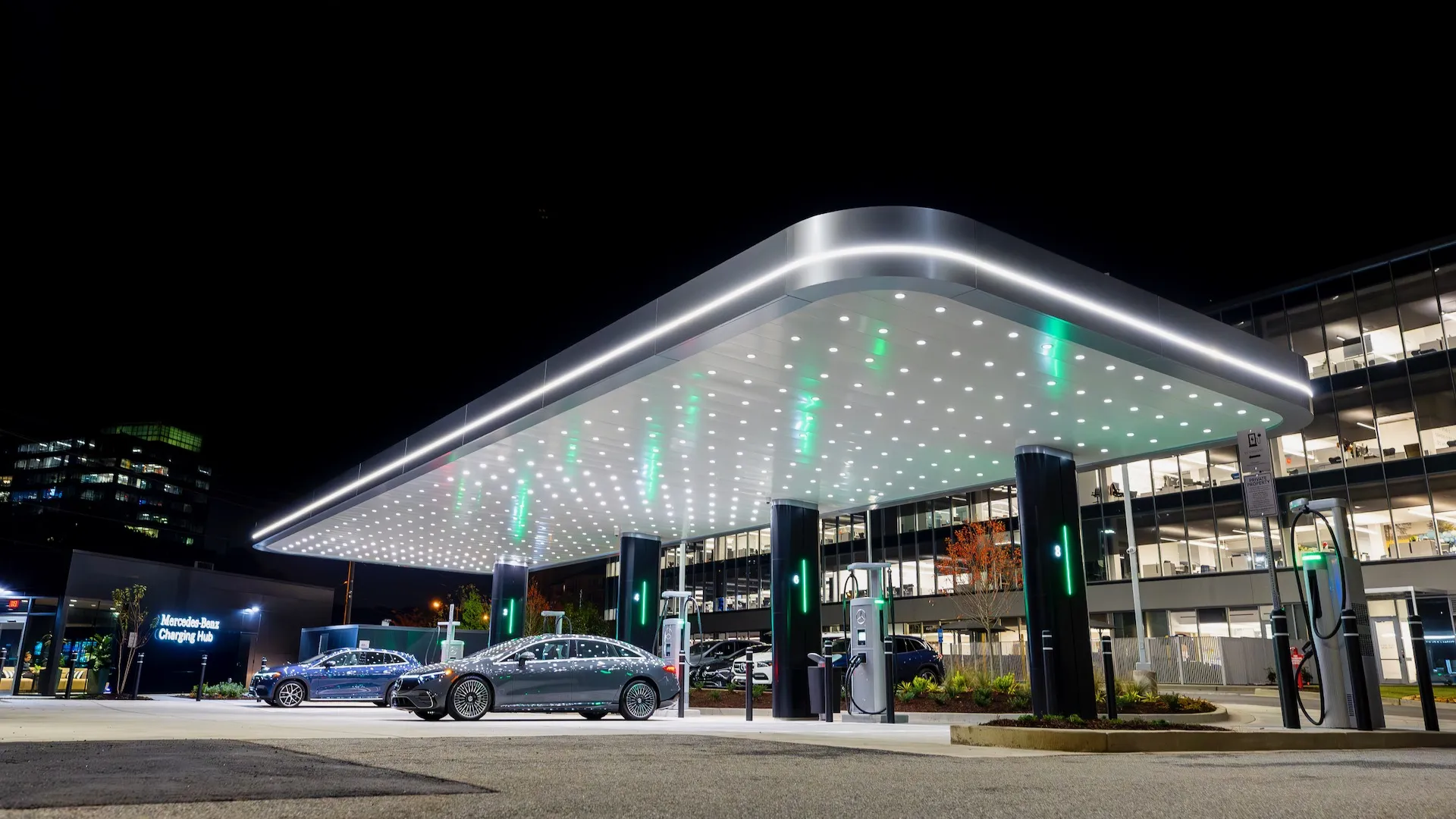Construction of Volvo Cars and Northvolt’s joint Li-on battery gigafactory in Gothenburg, Sweden, is now underway. Once complete, it will be among the largest in Europe, with over 3,000 employees and potential to produce batteries for around half a million cars per year.
During the summer, Novo Energy, the joint company, had its environmental permit for the new plant approved. In August, the City Planning Committee in Gothenburg also approved the building permit for the first phase, entailing 130,000 sqm. The building will include the first production line, which is expected to be operational in late 2026.
To kick off the construction, the actors involved met yesterday for a ground-breaking ceremony at the edge of the woods west of Volvo Cars’ Torslanda factory.
“Novo Energy’s gigafactory will be a landmark for the green transition. It combines everything – important technology, modern industry and thousands of jobs with good conditions. This makes Gothenburg better,” says Jonas Attenius, the Mayor of Gothenburg.
Meanwhile, Novo Energy’s R&D activities at Lindholmen are expanding at a fast pace. There, specialists and engineers are developing tomorrow’s batteries for Volvo and Polestar cars.
When complete, the new battery gigafactory in Gothenburg will have a potential annual cell production capacity of up to 50 gigawatt hours (GWh).
“It’s a great day for us, a real milestone. We are grateful to everyone who contributes in different ways. The know-how and innovation that exists here in Gothenburg is fantastic. We have been able to grow to 200 people in a short time, but we need to continue to grow rapidly, and scale up as our entire industry grows,” says Adrian Clarke, CEO of Novo Energy.
“We appreciate the investments being made in education, training and housing. Together we need to attract more international talent to the Gothenburg region.”
Work at the site will start on 1 October. But the City of Gothenburg already has connected projects underway, coordinated by Business Region Göteborg.
Purified wastewater will be used to cool the plant, which is unique at this scale. Two large pipes, one metre in diameter, are currently being laid to transport the water from the region’s wastewater plant to the gigafactory, and opposite, a distance of 6 kilometres.
Göteborg Energi and Vattenfall are building a power station north of the site for connecting the gigafactory to the regional grid’s 130 kV power line. Preparatory work is also underway, among other things, to connect the site to the district heating, water, stormwater and wastewater systems.
Building the gigafactory will involve a large number of construction jobs, as well as increased traffic. Work is underway to facilitate the building process and reduce the impact on people working in the area and society at large. This involves temporary housing for construction workers and solutions for handling increased traffic volumes to the area in Torslanda.
“Together with the company, we’ve visited Skellefteå [in northern Sweden] and learnt from Northvolt, the authorities and other actors, drawing on experiences from the establishment of their gigafactory up there,” says Björn Gustafsson, the City’s coordinator for the Gothenburg gigafactory investment.
The entire industry, not just Novo Energy, face challenges around skills supply, including the Volvo Group, Volvo Cars itself and battery manufacturer Alelion. Region Västra Götaland, the Gothenburg region and the City of Gothenburg have been working together for a long time to strengthen the supply of skills linked to electromobility in general. This takes place at all levels of education, from primary school to upper secondary and vocational education, and also includes transition initiatives and programmes for the unemployed. This work has been further strengthened with the establishment of Novo Energy.
The City of Gothenburg has decided to establish a training centre for electromobility and battery manufacturing at Lindholmen. There, employees, as well as high school students, adult students and students at vocational colleges will be able to be trained in modern learning environments. The City of Gothenburg and Region Västra Götaland are each investing SEK 45 million (approx. EUR 4 million) in the training center, which is expected to open in autumn 2024.










